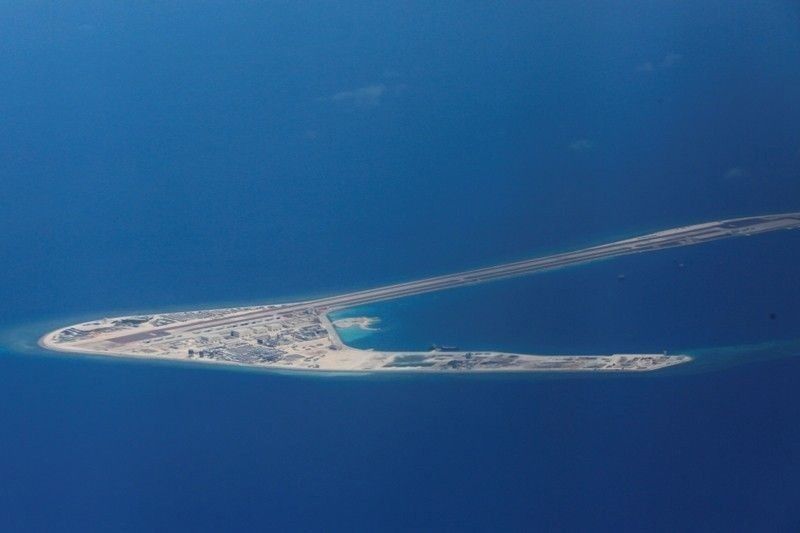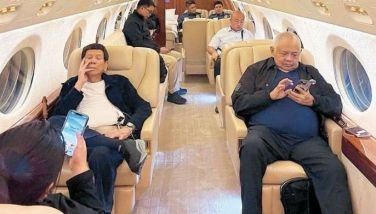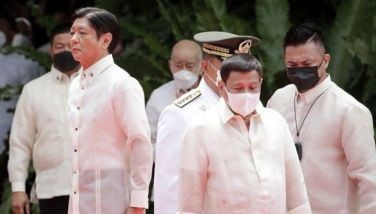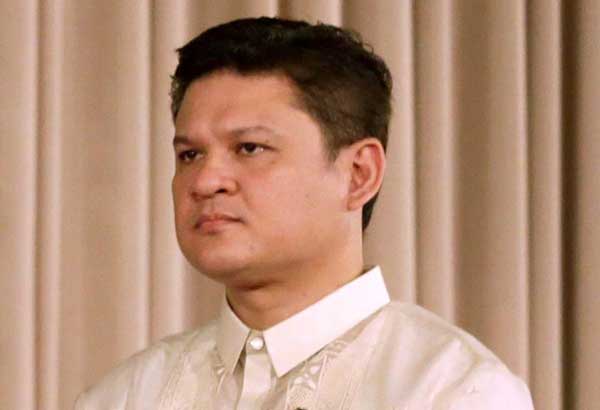Marcos urged to resume talks with China on West Philippine Sea

MANILA, Philippines — A Senate resolution has been filed urging President Marcos to resume bilateral talks with China to promote cooperation on oil and gas development in the West Philippine Sea amid the skyrocketing prices of oil due to international developments such as the Russia-Ukraine conflict.
“To address the problems caused by skyrocketing prices of oil due to international developments such as the Russia-Ukraine conflict, the Philippines and China must resume bilateral talks for cooperation on oil-gas development in the West Philippine Sea,” Sen. Robin Padilla said in his Senate Resolution No. 9.
The neophyte senator cited a Memorandum of Understanding on Cooperation on Oil and Gas Development between the Philippines and China on Nov. 20, 2018.
“Now, therefore, be it resolved, as it is hereby resolved, urging President Ferdinand R. Marcos Jr. to resume the bilateral talks with the People’s Republic of China for the purposes of cooperation on oil and gas development in the West Philippine Sea,” Padilla’s resolution stated.
“The Philippines requires a long-term strategy to resolve its oil dependency from foreign sources as the country is vulnerable to the negative effect of the skyrocketing oil prices dictated by the world market’s reaction to the Russia-Ukraine conflict,” he added.
Aside from the resumption of bilateral talks, Padilla also filed Senate Bill 229 seeking to suspend excise taxes on unleaded premium gas, regular gas and diesel oil, to address the effects of rising oil prices.
Under the bill that seeks to amend Section 148 of the National Internal Revenue Code, the excise tax for these products will be automatically suspended if the average Dubai crude oil price based on the Mean of Platts Singapore will reach or exceed $80 per barrel in three months.
Padilla pointed out that the Philippines and China understand that the MOU – which former foreign secretary Teodoro Locsin Jr. recently announced had been terminated – does not conflict with the Philippines’ assertion of sovereign rights in the West Philippine Sea.
“The parties further understand that the MOU shall not be prejudicial to ‘respective legal positions’ which ‘does not create rights or obligations under international or domestic law’ and as such, there is no derogation of the Philippines’ assertion of its sovereign rights in the West Philippine Sea,” he said.
Also, he said the execution of the MOU is a “valid exercise of the executive powers of the President” under Article VII, Section 1 of the Constitution.
Padilla added Article XII, Section 2 of the Constitution allows the Philippines to “directly undertake to or enter into co-production, joint venture or production-sharing agreements on petroleum and other mineral oils and all forces of potential energy.”
“The new administration has the opportunity to resume the bilateral talks with the People’s Republic of China for purposes of cooperation in the WPS on gas and oil development without bargaining the sovereign rights of the Philippines on the disputed territories therein,” Padilla pointed out.
“In view of the gains attained from the MOU where the GRP and PRC cooperated on the terms provided therein on the gas and oil development in the WPS, the new administration can further explore these common interests of cooperation to resolve the country’s oil dependency from foreign countries,” he added.
- Latest
- Trending





























